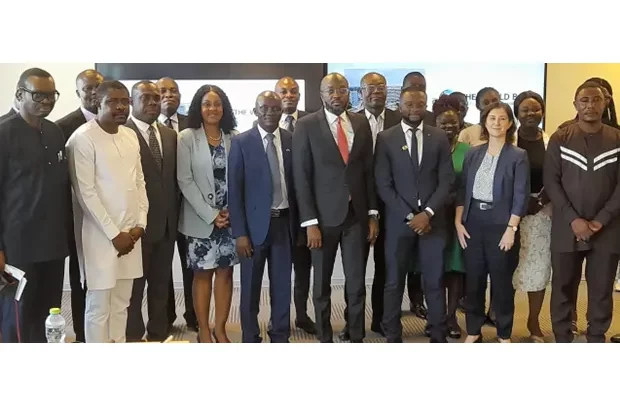Some participants at the launch
The Director General of the Internal Audit Agency (IAA), Dr. Oduro Osae says challenges facing the country’s public financial systems could be addressed if internal audit of the various public institutions are strengthened.
Speaking at the launch of the Independence and Accountability in Governance Report in Accra, he said internal audit is a preventive approach that reduces the pressure on the Auditor General, hence strengthening internal audit in various public institutions is one of the surest ways to improve public financial management.
Independence and Accountability in Governance assessment was conducted as part of the World Bank’s Advisory Services and Analytics on Accountability Institutions in Ghana.
It focused on the independence of the Ghana Audit Service referred to as the Supreme Audit Institution (SAI), and a review of the audit recommendation follow up process.
The Ghana Audit Service is the Supreme Audit Institution responsible for overseeing how public funds are spent.
According to him, though efforts by government to adequately fund the Audit Service is in the right direction, particularly in meeting the constitutional provision, the challenges facing the country’s financial system would “come back to bite us” for failing to equally put in place structures for internal audit.
He said the controlled environment in which the SIA works is very important but if the environment is very chaotic, the Audit Service would find it difficult to do its work.
He further explained that the controlled systems used by internal audit improves the work of the Audit Service in order expedite their work on time.
“I think streamlining the disallowance and surcharging regime is an area where Ghana’s Audit Service needs a lot of support. Institutions can be surcharged but retrieving the money is the problem.
“If the controlled systems are not working, we give them too much work to do, so I think that we should strengthen the control systems which are managed by internal auditors,” he stressed.
Dr. Osae also emphassised the need for internal audit to be equally supported in order to prevent a ‘rotten’ system after all the work at the Audit Service, with the aim of fulfilling a constitutional requirement.
He assured participants of his outfit’s readiness to push for the revised Internal Audit Agency Act to be passed immediately by Parliament, which aims to streamline the structures of the internal audit system to bring the internal auditors under the control and management of the Internal Audit Agency.
The assessment revealed that the requirement for the establishment of the Audit Service Board consisting of seven members namely, a chairman and four (4) other members acting in consultation with the Council of State, Auditor General and the Head of the Civil Service and his representative has been implemented in practice.
It also made several recommendations following the assessments.
The launch brought together representatives from the World Bank Country Office in Ghana and a Deputy Finance Minister.
Others include Ghana’s Auditor General, Auditor Generals from Liberia and Sierra Leone and representatives of various civil society organisations.
By Ebenezer K. Amponsah


